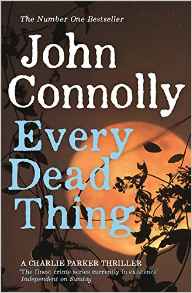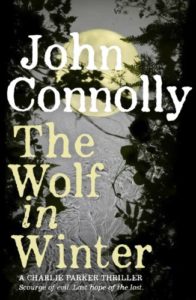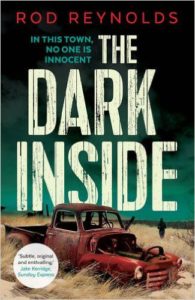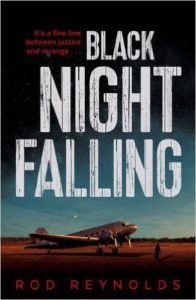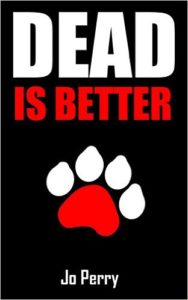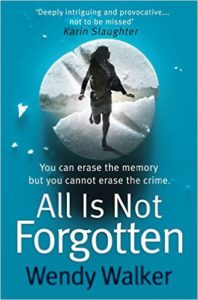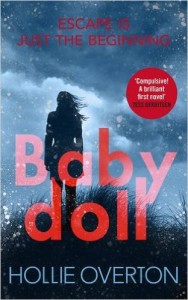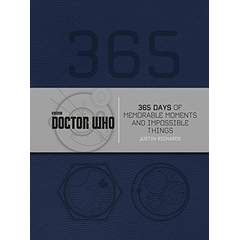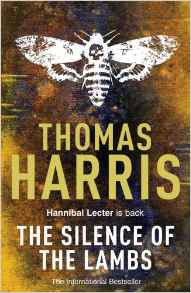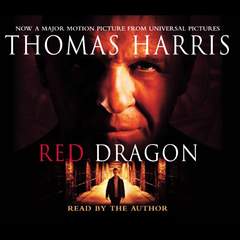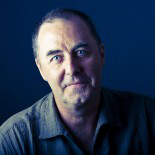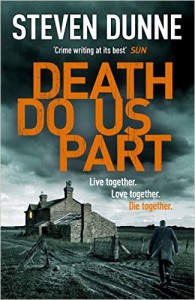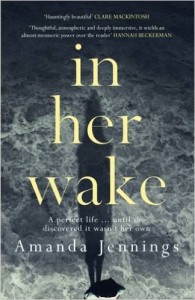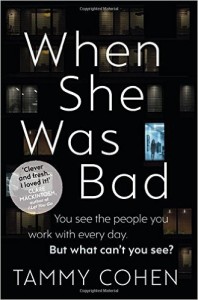It has been a couple of months since I last had the opportunity to share a chat between two authors, so it is with no small amount of pleasure that I welcome Ava Marsh and Marnie Riches to Grab This Book.
Marnie has a series of writing credits to her name but most recently has written the fantastic George McKenzie novels (The Girl Who trilogy). Returning readers will know I am a bit of fan of Marnie’s books (a slight understatement) and I am always thrilled when I can persuade her to share a little of her precious time to chat with me.
Last year Ava’s debut novel, Untouchable, topped my reads of the year. I loved how she wove a thrilling story around the world of high class escorts and managed to make the story the star without sensationalising the work that characters chose to do.
Both Marnie and Ava take a no frills approach to writing about potentially taboo areas and they also have complex lead characters who operate in challenging working environments – I wanted to know more:
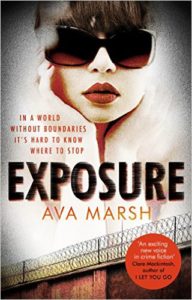 G: Ava – In Untouchable you wrote about prostitution and now Exposure is set around the porn industry – two areas which many readers may consider taboo subjects. Are you challenging that concept of taboo or are these simply areas which are (mainly) overlooked but offer so much potential as a backdrop for a thriller?
G: Ava – In Untouchable you wrote about prostitution and now Exposure is set around the porn industry – two areas which many readers may consider taboo subjects. Are you challenging that concept of taboo or are these simply areas which are (mainly) overlooked but offer so much potential as a backdrop for a thriller?
AM: Fair to say it’s both, Gordon. Yes, I thought those areas were rather under-exploited in terms of backdrops for a thriller, but I’m also interested in how society regards people working in the sex trade, particularly women, who tend to be marginalised, ignored, and barely considered ‘normal’ human beings. I’ve known several high class escorts, and they were very intelligent, university-educated women who enjoyed what they did – and not just the money.
So I wanted to break down some of the taboos, and show what might lead quite ordinary people to sell sex for money. I dislike the way we tend to lump all women working in the sex trade as ‘prostitutes’ or ‘porn stars’ and regard them at best as exploited, at worst as ‘dirty’ or immoral. While many prostitutes are exploited, it doesn’t hold true for all, and I’d argue that none are dirty or immoral. You can be a good person working as an escort or porn star, or you can be a very bad person working in politics or business, or some other ‘respectable’ profession. Yes, I’m looking at you, Boris.
G: Marnie, you have Amsterdam as a key setting in your George McKenzie novels. I’ve never visited the city but one of the first things it brings to mind (after canals, windmills and tulips) is the Red Light District.
I know that it has featured in your books but not to the sensational OTT extent that so often gets used when an author is trying to put their hero somewhere ‘unconventional’. Is it just another part of the city that’s actually been over-hyped by those that don’t live there? How do the Amsterdam residents view that side of their city?
MR: Ava, obviously much of my series is set in the red light district for the same reasons as you’ve outlined. I was interested to explore the motives of those women who had chosen to work in the sex trade, like George’s housemates, Inneke and Katja. In The Girl Who Broke the Rules, much of the action is also set in a Soho strip club. Predominantly, women have opted to work in these places because they offer good pay and flexible working hours. I believe there are girls working in strip clubs throughout Europe who are funding university education. But there are also plenty of trafficked women coming from all over the world, who have had their passports taken from them by unscrupulous trafficking rings. That promise of a better future and guaranteed paid work in Britain has often turned out to be slave labour in a backstreet brothel or nail bar. For me, the sex industry throws up all sorts of different stories and is an obvious starting point for a crime-thriller. What other motivations do criminals have beyond money, power and sex? Not many.
 When I lived in the Netherlands, I found it a very different country once I got outside of Amsterdam. While Amsterdam was laid back and had a genuinely liberal feel to it, in the neighbouring satellite towns, the attitude of the locals was fairly conservative and judgmental. It is, after all, a Calvinist country with a small population – even Amsterdam has less than a million inhabitants – so, seen through my jaded, big-city British eyes, there is an old-fashioned primness that underpins Dutch society. I think there are many citizens who are opposed to prostitution and legalised drugs. In fact, there are posters in shops and cafes around the country that say “No drugs here, please”. It’s a far more conservative country than people realise, as is Belgium, with plenty of racial tension that can produce fertile ground in which religious extremism can flourish. Obviously, for someone interested in writing about race issues, corruption and hypocrisy as much as describing historic, beautiful settings, Amsterdam offered itself as a perfect location for a thriller. I guess Amsterdamers have grown used to the Red Light District. It is, after all, a healthy part of the city’s tourist industry.
When I lived in the Netherlands, I found it a very different country once I got outside of Amsterdam. While Amsterdam was laid back and had a genuinely liberal feel to it, in the neighbouring satellite towns, the attitude of the locals was fairly conservative and judgmental. It is, after all, a Calvinist country with a small population – even Amsterdam has less than a million inhabitants – so, seen through my jaded, big-city British eyes, there is an old-fashioned primness that underpins Dutch society. I think there are many citizens who are opposed to prostitution and legalised drugs. In fact, there are posters in shops and cafes around the country that say “No drugs here, please”. It’s a far more conservative country than people realise, as is Belgium, with plenty of racial tension that can produce fertile ground in which religious extremism can flourish. Obviously, for someone interested in writing about race issues, corruption and hypocrisy as much as describing historic, beautiful settings, Amsterdam offered itself as a perfect location for a thriller. I guess Amsterdamers have grown used to the Red Light District. It is, after all, a healthy part of the city’s tourist industry.
G: Marnie, I had no idea that any element of Dutch society was prim – the media based perception I have is clearly totally different.
Intolerances are very topical at the moment, in light of Brexit and it seems everyone has declared an Open Season on voicing discord and unpleasant viewpoints. As for Trump…
Do you each feel that you have a responsibility when you write to challenge or even undermine intolerant voices or opinions?
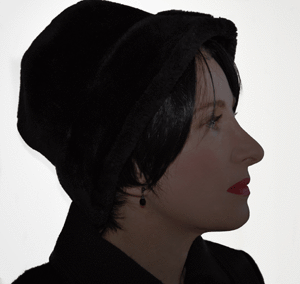 AM: Yes, fascinating insight into Dutch society, Marnie, and I felt that came across well in The Girl Who Wouldn’t Die. To answer your question, Gordon, I am indeed deeply interested in reflecting political and cultural concerns in my books. In Untouchable I wanted to tackle issues of inequality and corruption, for instance, while in Exposure, I was more concerned with sexual politics and the misogyny inherent in the porn industry.
AM: Yes, fascinating insight into Dutch society, Marnie, and I felt that came across well in The Girl Who Wouldn’t Die. To answer your question, Gordon, I am indeed deeply interested in reflecting political and cultural concerns in my books. In Untouchable I wanted to tackle issues of inequality and corruption, for instance, while in Exposure, I was more concerned with sexual politics and the misogyny inherent in the porn industry.
I guess one of the main ways we do this as writers is to create characters who embody attitudes, morals or values we dislike or want to oppose, then show how those characteristics play out within the plot and how other characters respond to them. So in Untouchable, Harry represents a wealthy elite that believes itself to be, well, untouchable. In Exposure, Victor embodies a certain kind of man who works in the porn industry – in fact he was directly drawn from a real-life character who makes very violent and sadistic porn movies under a pseudonym. To this day no one is entirely sure who he is.
G: It is actually really disturbing to learn Victor is based upon a real character, when he pops up in Exposure I actually started to feel anxious about what was about to happen (even his presence was chilling).
Ava, would you say there was an acceptance in both the porn industry and amongst escorts that “that’s just how it is”? Is the ‘norm’ of that lifestyle so firmly established that even highlighting the worst of conditions will make little practical difference?
AM: Interesting question, Gordon. I think the situation is much worse in pornography than it is in escorting. Independent escorts commonly define exactly what they will and will not do on their websites, and so have rather good boundaries, in that sense.
Porn girls on the other hand are trying to make a name for themselves in an industry that is predicated on novelty. The problem with sex is that any stimulus often repeated soon becomes boring, so men quickly tire of seeing the same girls doing the same things, especially given there is no emotional context or ‘story’ to embellish what they’re watching on screen. This creates a constant pressure for something new, something exciting, and that tends to escalate what girls are expected to do. I am not sure if there is any solution, and while I feel escorting at the higher levels is relatively harmless – assuming the woman has gone into it willingly – porn damages all of us in subtle ways. Lots of things many women now do routinely – such as shave off their pubic hair – began in porn flicks. There has also been much written about how porn is shaping young men’s attitudes to sex, and how that impacts on the girls they hook up with; in the same way violence on screen has been shown to desensitise us, pornography does too.
MR: If I could respond belatedly to Gordon’s point about assuming a responsibility to challenge intolerance, I’d say yes, I feel a responsibility – not so much to be didactic in my novels but to portray both extremes and the stuff in-between fairly. Two big issues in my George McKenzie series are sexual and racial politics. So, I portray sexist men – at the lesser end of the scale, men like Vim Fennemans, who intimidate and prey on vulnerable young, female students, and at the extreme end of the scale, men like The Duke and the Italian traffickers in The Girl Who Broke the Rules who see women and girls as sexual commodities only – in all their rather unpleasant true colours. I then portray the likes of George McKenzie, my heroine, as a woman’s woman, who eschews things like shaved pubes and body fascism and traditional notions of femininity. Van den Bergen, of course, makes a good stab at being a male feminist! It’s obvious whose side I’m taking. Similarly, racists in my novels are portrayed in detail with backstories of their own that explain their racism, but it doesn’t mean I side with them. My heroes in the George McKenzie series are, after all, predominantly Black.
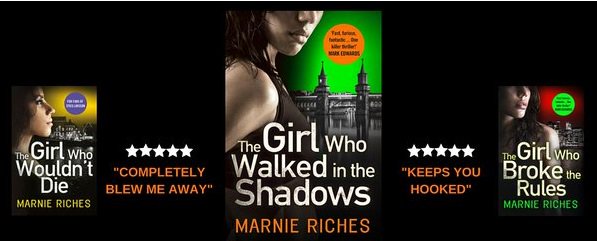 In my forthcoming Manchester series, issues of racism, sexism and also criminality are explored in the story (Manchester is a real racial melting pot with people of many ethnicities living together harmoniously, at least superficially). As with the George McKenzie series, I’m interested in the shades of grey, not the black and white. Everyone has a price for which they will be corrupted. Everyone is capable of intense hypocrisy and self-preservation at the expense of others. Everyone is guilty at some point in their lives of manipulating situations to their own advantage through the use of sexuality. It’s always fun to explore those dynamics between characters. In the Manchester series, which are criminal-led stories rather than police procedurals, I try not to judge. And I agree with Ava that pornography has become damaging in nature. I toyed with the idea of doing a PhD in feminism and violent hardcore porn, in a similar vein to George’s PhD studies. I found the subject too depressing in the end and abandoned ideas of the PhD in favour of working in Soho – but not in a titty bar! In a music publisher’s!
In my forthcoming Manchester series, issues of racism, sexism and also criminality are explored in the story (Manchester is a real racial melting pot with people of many ethnicities living together harmoniously, at least superficially). As with the George McKenzie series, I’m interested in the shades of grey, not the black and white. Everyone has a price for which they will be corrupted. Everyone is capable of intense hypocrisy and self-preservation at the expense of others. Everyone is guilty at some point in their lives of manipulating situations to their own advantage through the use of sexuality. It’s always fun to explore those dynamics between characters. In the Manchester series, which are criminal-led stories rather than police procedurals, I try not to judge. And I agree with Ava that pornography has become damaging in nature. I toyed with the idea of doing a PhD in feminism and violent hardcore porn, in a similar vein to George’s PhD studies. I found the subject too depressing in the end and abandoned ideas of the PhD in favour of working in Soho – but not in a titty bar! In a music publisher’s!
G: One last question before we wrap up: do you each find it hard to get into the head of your more unpleasant characters?
AM: It depends on how unpleasant they are! Some are so very bad – Harry, Victor – that it’s simply a question of portraying that. You don’t really need to understand or like them. For someone like Alex in Untouchable, his psychology was more opaque, and I had a lot of fun working out how he ticked, and I have to confess I liked him an awful lot.
It’s Kitty in Exposure, however, who gave me the most grief – it took me a long, long time to work out who she was and what she was doing, and to understand what was behind some of her more ‘challenging’ behaviour. The thing to remember is that even the bad guys think they’re good, or at least justified in what they’re doing, and to some extent they are right: it’s all a matter of perspective.
MR: I particularly enjoyed your character, Stella in your first book, Ava. I thought she was very well drawn. Character is really very important to me in my series, and I have quite a large cast in each book – villains as well as heroes. In fact spectacularly bad baddies are my bread and butter – the story springs from them. I adored writing creepy fetishistic anaesthetist, Silas Holm in The Girl Who Broke the Rules, though I have no personal interest in his niche, murderous pastimes!
In my new book about Manchester, there are a couple of really wonderful psychopaths: two henchmen for warring sides, one of whom is called Conky McFadden and the other who is called Asaf Smolensky. They’re so different from one another, with Conky having been highly educated (in prison) but with a shady past of sectarian violence in Northern Ireland and Asaf Smolensky, aka the Fish Man being an ex-Mossad agent, dishonourably discharged from the Israeli army and suffering from PTSD. And then, there’s the main bastard, Paddy O’Brien, who rules South Manchester. He’s a piece of work! I love to hate him. I find writing these murderous types endlessly entertaining but if I don’t suss their backstories out before I start to spin my yarn, the story won’t work, as all action must come from character.
There are no purely good goodies in my books though. I’m interested in the shades of grey, resulting in George McKenzie having skeletons in her closet and a huge chip on her shoulder and Van den Bergen being frustrating and unlikeable at times. That’s the way people are! I don’t believe in saccharin goody-two-shoes. Perfectly nice people usually have something more lurking behind a facade. Luckily, I think I have a very good lay-person’s understanding of psychology, so I can generally work out beforehand why my characters are the way they are in my stories to ensure that they’re are believable.
My most sincere thanks to Marnie and Ava. We have challenged taboos, highlighted inequality, corruption and exploitation and talked about their respective bad guys. Despite all these dark topics it has been an absolute thrill for me to have had the opportunity to chat with Ava and Marnie who have both continued to be so wonderfully supportive of this blog.
Marnie’s George McKenzie novels can be ordered through this link: http://www.amazon.co.uk/Marnie-Riches/e/B00WBJZ364/ref=sr_tc_2_0?qid=1467243661&sr=1-2-ent
Ava’s novels are also easily ordered by clicking through this link: http://www.amazon.co.uk/Ava-Marsh/e/B00LY3Z3UO/ref=sr_tc_2_0?qid=1467243734&sr=1-2-ent
 I recently had the chance to chat with Ava Marsh and Marnie Riches about the darker side to writing and researching their books. Today I am thrilled to welcome back Ava so that I can chat a bit more about Untouchable and Exposure and ask what the reader feedback has been like.
I recently had the chance to chat with Ava Marsh and Marnie Riches about the darker side to writing and researching their books. Today I am thrilled to welcome back Ava so that I can chat a bit more about Untouchable and Exposure and ask what the reader feedback has been like.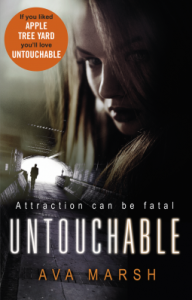 I noticed the ‘party’ scene created something of a stir in the reviews I read. Did that surprise you or did you know as you wrote it that this would be a much discussed element of the story?
I noticed the ‘party’ scene created something of a stir in the reviews I read. Did that surprise you or did you know as you wrote it that this would be a much discussed element of the story? 
